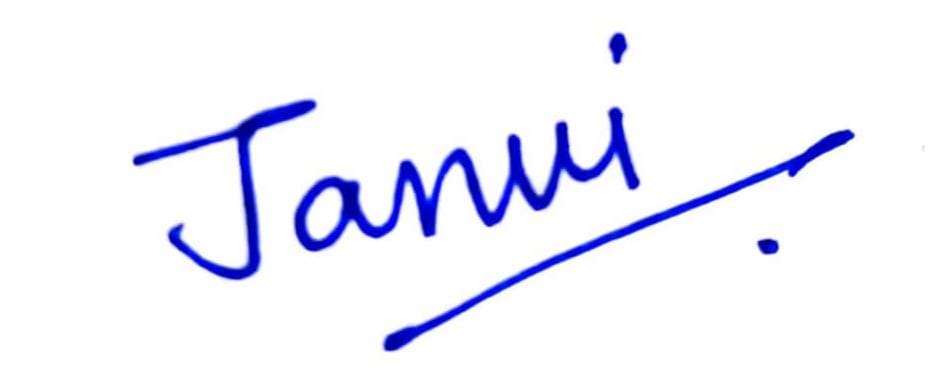Q1. Write the name of books written by Machiavelli.
Q2. Describe the Machiavelli’s views on Human Nature.
Q3. Why Machiavelli is regarded as the Child of Renaissance?
Q4. Evaluate the contribution of Machiavelli to Political Thought.
Q5. Discuss the views of Machiavelli on Religion and Morality.
Q6. Examine Machiavelli as the first modern political thinker.
Q7. Draw parallels between Arthashastra tradition and the ‘Realist’ tradition represented by Machiavelli. (UPSC-2012)
Q8. Critically examine Machiavelli’s views on religion and politics. (UPSC-2018)
Q9. Machiavelli’s secularism. (UPSC-2020)

Hey champs! you’re in the right place. I know how overwhelming exams can feel—books piling up, last-minute panic, and everything seems messy. I’ve been there too, coming from the same college and background as you, so I completely understand how stressful this time can be.
That’s why I joined Examopedia—to help solve the common problems students face and provide content that’s clear, reliable, and easy to understand. Here, you’ll find notes, examples, scholars, and free flashcards which are updated & revised to make your prep smoother and less stressful.
You’re not alone in this journey, and your feedback helps us improve every day at Examopedia.
Forever grateful ♥
Janvi Singhi

Give Your Feedback!!
Topic – Machiavelli (Q&A)
Subject – Political Science
(Western Political Thought)
Niccolò Machiavelli (1469–1527) was an Italian Renaissance political philosopher who had a profound and lasting impact on the development of political thought. He is often described as the father of modern political science, because he broke away from the moral, religious, and utopian traditions of medieval political philosophy and developed a pragmatic approach grounded in realism and the practicalities of power. His writings, particularly “The Prince” (1513) and “Discourses on Livy” (1517), transformed the way politics was understood, shifting attention from what ought to be to what actually is. By focusing on statecraft, power, and survival, Machiavelli redefined politics as an autonomous sphere, laying the intellectual foundations for later thinkers from Hobbes to Morgenthau.
Historical Context and Background
Machiavelli was born in Florence, a city-state that witnessed extreme political instability during his lifetime. Italy in the late 15th and early 16th centuries was fragmented into rival city-states such as Florence, Venice, and Milan, often caught in the crossfire of powerful kingdoms like France, Spain, and the Holy Roman Empire. Florence itself oscillated between republican governance and the dominance of the Medici family. Machiavelli served as a diplomat and official in the Florentine Republic, where he observed leaders like Cesare Borgia, whose ruthlessness and cunning deeply influenced his writings. This turbulent context impressed upon Machiavelli the need for strong leadership, adaptability, and pragmatic decision-making in politics.
The Prince: Foundations of Political Realism
Machiavelli’s “The Prince” is considered a revolutionary text in political philosophy. Unlike earlier works that were steeped in Christian morality and classical virtue ethics, it provided rulers with a manual for acquiring and maintaining power, irrespective of moral or religious constraints. The central idea was that the ends justify the means—a ruler must be willing to employ deceit, manipulation, and even cruelty if necessary for the stability of the state.
One of Machiavelli’s famous maxims was that it is “better to be feared than loved” if one cannot be both. This assertion broke sharply with traditional ideals of benevolent kingship, suggesting instead that fear ensures obedience more reliably than love, provided it does not lead to hatred.
Machiavelli also introduced the concepts of virtù and fortuna. Virtù refers not to moral virtue but to a ruler’s capacity for boldness, skill, strategic foresight, and adaptability, while fortuna symbolizes the element of chance or luck in human affairs. A successful ruler, according to Machiavelli, cannot eliminate fortune but can mitigate its unpredictability through the cultivation of virtù. This balance of human agency and fate underscores Machiavelli’s practical and non-idealistic approach to governance.
In this sense, “The Prince” is often regarded as the first systematic expression of political realism—a tradition later carried forward in international relations theory.
Discourses on Livy: Republican Vision
While “The Prince” emphasizes autocratic leadership, Machiavelli’s “Discourses on Livy” paints a different picture. Here, he explores the institutions of the Roman Republic, advocating for a mixed constitution that combined elements of monarchy, aristocracy, and democracy. Unlike the cynical tone of “The Prince,” the Discourses highlight the importance of civic virtue, active citizenship, and institutional checks and balances.
Machiavelli argued that the strength of Rome lay in its balanced constitution and the dynamic conflict between the aristocracy (Senate) and the people (tribunes). Contrary to the medieval belief that conflict undermines social harmony, he argued that conflict can strengthen republican institutions by ensuring accountability and preventing tyranny. This view anticipated the modern idea of separation of powers and influenced later thinkers like Montesquieu and the framers of the U.S. Constitution.
Thus, while “The Prince” became associated with authoritarian statecraft, the “Discourses” positioned Machiavelli as a theorist of republicanism and popular participation.
Realism and the Separation of Morality from Politics
A hallmark of Machiavelli’s contribution is his clear separation of morality from politics. Earlier thinkers such as St. Augustine and Thomas Aquinas had framed politics within a Christian moral order, where rulers were expected to uphold divine justice and virtue. Machiavelli shattered this tradition, insisting that political necessity often requires actions deemed immoral in private life.
This gave rise to the doctrine of raison d’état (reason of state), which justifies political actions solely on the basis of state survival and interest. According to Machiavelli, the preservation of the state is the highest law, even if it requires lying, violence, or betrayal. By grounding politics in power dynamics, human self-interest, and empirical observation, Machiavelli laid the groundwork for both modern statecraft and realist theories in political science and international relations.
This amoral realism has remained controversial. Critics argue it legitimizes tyranny and ruthless manipulation, but defenders note that it exposes the harsh truths of political life often ignored by idealists.
Influence on Later Political Thinkers
Machiavelli’s influence can be traced across centuries. His writings were initially condemned—“The Prince” was placed on the Index of Prohibited Books by the Catholic Church, and the adjective “Machiavellian” became synonymous with cunning and deceit. Yet, his ideas gradually shaped modern political thought.
- Thomas Hobbes echoed Machiavelli’s belief in the necessity of strong authority to prevent disorder, as seen in his work “Leviathan”.
- John Locke and Jean-Jacques Rousseau, while more optimistic about human nature, borrowed from Machiavelli’s republican ideas in the Discourses, particularly regarding civic virtue and participatory government.
- Montesquieu’s theory of separation of powers was anticipated in Machiavelli’s discussion of checks and balances.
- In the 20th century, thinkers like Max Weber drew upon Machiavelli’s insights on power and leadership, especially Weber’s notion of the ethic of responsibility.
- Hans Morgenthau, the father of modern realist theory in international relations, acknowledged Machiavelli’s role in grounding politics in power and national interest.
Beyond philosophy, Machiavelli influenced military strategy, leadership studies, and management theory, with his emphasis on adaptability, prudence, and decisive action continuing to resonate in contemporary political and organizational contexts.
Criticism of Machiavelli
Despite his enduring influence, Machiavelli has also faced sharp criticism. Many accuse him of promoting immorality and ruthless opportunism, as if endorsing the belief that “the ends justify the means.” His portrayal of human beings as inherently selfish, ungrateful, and deceitful has been critiqued as overly pessimistic. Moreover, critics argue that his framework risks legitimizing authoritarianism and undermining ethical governance.
However, defenders argue that Machiavelli never glorified cruelty for its own sake but recognized it as sometimes necessary for political survival. Others note that his “Discourses” reveal a strong appreciation for republican liberty and popular involvement, suggesting that Machiavelli was not simply an apologist for tyranny but a complex thinker with a dual vision—pragmatic authoritarianism in unstable conditions and republicanism in stable systems.
Conclusion
In conclusion, Niccolò Machiavelli’s contribution to political thought is both revolutionary and enduring. Through “The Prince,” he pioneered political realism, separating politics from morality and emphasizing the ruthless pragmatism sometimes necessary for state survival. Through the “Discourses on Livy,” he offered a republican vision rooted in civic virtue, popular participation, and institutional checks on power. His emphasis on virtù and fortuna, raison d’état, conflict, and realism laid the intellectual foundations for modern political science, republicanism, and international relations theory.
Though controversial and often misinterpreted, Machiavelli remains one of the most influential thinkers in the history of political philosophy. His works continue to challenge readers to confront the uncomfortable realities of power, the fragility of political order, and the tension between ethics and necessity in governance. By stripping politics of illusions and grounding it in the practical struggle for power and survival, Machiavelli ensured his place as a thinker whose insights remain as relevant in the 21st century as they were in the Renaissance.
Niccolò Machiavelli (1469–1527), often regarded as the “father of modern political thought,” brought a profound shift in the discourse of politics by separating politics from ethics and religion. In his seminal works The Prince (1513) and Discourses on Livy, Machiavelli treated religion not as divine truth but as a political instrument. His pragmatic approach challenged the medieval synthesis of politics and theology, representing the spirit of Renaissance realism.
Religion as an Instrument of Politics
Machiavelli held that religion could be utilised by rulers to instil discipline, unity, and obedience among people. In Discourses on Livy, he praised ancient Roman religion for creating civic virtue and collective loyalty, contrasting it with the corruption of the contemporary Church, which he blamed for Italy’s political disunity. For him, religion was less about faith and more about its utility in preserving the state. For Example: Roman rituals and omens were used to discipline soldiers and prevent disobedience, showing religion’s instrumental role.
Separation of Politics from Theology
Machiavelli broke away from medieval political thought, where the Church dominated politics. He asserted that political action should be judged by outcomes, not by morality or divine sanction. This represented the secularisation of politics, paving the way for modern statecraft. Quentin Skinner highlights that Machiavelli was among the first to treat religion as a civic institution rather than a metaphysical truth.
On one hand, Machiavelli saw religion as necessary to maintain morality among the masses. On the other hand, he criticised the Papacy, accusing it of corruption and political exploitation. He viewed Christianity, particularly its emphasis on humility and meekness, as weakening civic virtue compared to the martial spirit of Roman religion. Leo Strauss argues that Machiavelli’s treatment of Christianity reflects his anti-Christian orientation and even labels him a “teacher of evil” for subordinating religion to political expediency.
Critics argue that his purely instrumental view of religion ignores its spiritual and ethical dimensions, reducing it to a tool of manipulation. Rousseau, while admiring Machiavelli, insisted that religion should create genuine civic morality, not just fear or obedience. In practice, excessive political use of religion has often led to intolerance, authoritarianism, and communalism—contradicting Machiavelli’s hope of civic unity. For Example: In modern democracies, the misuse of religion in politics has often deepened societal divides instead of strengthening states.
To conclude, Machiavelli’s treatment of religion marked a watershed in political thought, shifting the focus from divine sanction to secular statecraft and civic utility. By emphasising its instrumental value, he provided rulers with a pragmatic tool of governance, but also opened the door to the manipulative misuse of faith in politics. While his ideas resonate in debates on secularism and realpolitik, a critical evaluation shows that reducing religion solely to a political instrument risks undermining its ethical and spiritual role in sustaining human dignity and harmony.
Western Political Thought Membership Required
You must be a Western Political Thought member to access this content.
